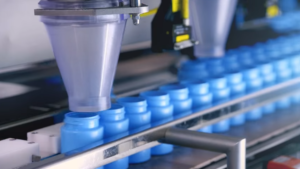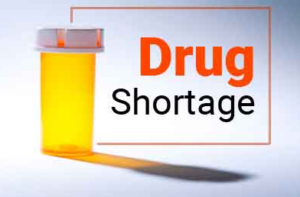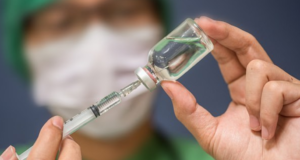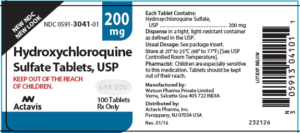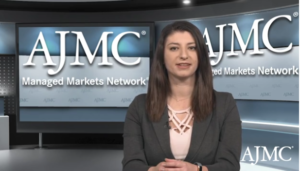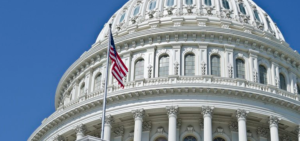- Novartis, Mylan and Teva to supply tens of millions of chloroquine tablets to fight COVID-19 (fiercepharma.com)
As efforts to discover new COVID-19 medicines roll on, President Donald Trump and others this week focused attention on the decades-old malaria drug chloroquine. Bayer got things rolling with an initial donation of the drug, and now Novartis, Mylan and Teva are taking steps to deliver tens of millions of tablets...Chloroquine and hydroxychloroquine, a more tolerable formulation, are not approved to treat COVID-19. Still, U.S. authorities and others are exploring their potential following encouraging preliminary results...In response, Novartis has pledged a global donation of up to 130 million hydroxychloroquine tablets, pending regulatory approvals for COVID-19. Mylan is ramping up production at its West Virginia Facility with enough supplies to make 50 million tablets. Teva is donating 16 million tablets to hospitals around the U.S...READ MORE
- Drug Shortage Concerns Are Top of Mind Amid COVID-19 Outbreak (pharmacytimes.com)
As the novel coronavirus crisis continues, one key issue for pharmacists, other health care professionals, and patients is the potential for drug shortages in the United States...There is growing concern because although reserves exist, China experienced a drop-off in drug production during the height of its COVID-19 outbreak, though that is leveling off. And India, another big supplier, has also said that it will keep some of the medications it makes on reserve...“We are now starting to see spot shortages for a few different products, in part due to disease progression around the world, especially across Europe, which is a large producer of drugs,”... the FDA has announced a drug shortage caused by the COVID-19 outbreak but has not identified the drug or the country where it is made, in an effort to prevent hoarding and panic...READ MORE
- Clinical Trial Launched for Investigational COVID-19 Vaccine (drugtopics.com)NIH begins clinical COVID-19 investigational vaccine trials (drugstorenews.com)Researchers rush to test coronavirus vaccine in people without knowing how well it works in animals (statnews.com)
A clinical trial evaluating an investigational vaccine for the 2019 novel coronavirus, SARS-CoV-2, has been launched, with volunteers receiving the first injection on Monday, March 16, Kaiser Permanente Washington Health Research Institute...This is the first trial to be launched in humans for a vaccine for this virus, which caused COVID-19, according to Kaiser Permanente...The phase 1 federally sponsored study involves 45 volunteer participants and is evaluating the investigational vaccine called mRNA-1273, developed by Moderna, over a 6-week period. In this phase of the study, Kaiser Permanente researchers are testing the safety of various doses and whether these doses produce an immune response...READ MORE
- This Week in Managed Care: March 13, 2020 (ajmc.com)
Christina Mattina, welcome to This Week in Managed Care from the Managed Markets News Network
- Government BANS companies from exporting 80 crucial drugs including intensive care medications adrenaline and morphine amid fears coronavirus crisis will overload hospitals (dailymail.co.uk)
The British Government has banned companies from buying up drugs used on intensive care wards and selling them to hospitals in other countries...The Department of Health has announced that the exporting of certain drugs including painkillers, antibiotics and anaesthetics will no longer be allowed...This ban on international sale of the drugs is intended to shore up Britain's supplies of drugs which are crucial for treating intensive care patients...Increasing numbers of people will need to be admitted to critical care units in the coming weeks and the Government must move to make sure they can be looked after. Although bed capacity is an issue, banning the drugs is one way hospitals can make sure their supplies don't run dry...READ MORE
- Two generic drugs being tested in U.S. in race to find coronavirus treatments (reuters.com)
U.S. researchers, following the lead of scientists in other countries, have launched studies to see whether widely-available, low-cost generic drugs can be used to help treat the illness caused by the new coronavirus...But a 1,500-person trial, led by the University of Minnesota, began this week to see whether malaria treatment hydroxychloroquine can prevent or reduce the severity of COVID-19. Two other trials are studying the blood pressure drug losartan as a possible treatment for the disease...READ MORE
- How much does U.S. rely on China for drugs? FDA simply doesn’t know (fiercepharma.com)
As the spread of COVID-19 threatens to disrupt pharma supply chains and create drug shortages, the Trump administration is reportedly looking for ways to reduce U.S. dependence on APIs and drugs from China. So, how dependent is the U.S. on China for its drugs? The fact is, the FDA doesn’t know...“The FDA doesn’t know whether Chinese facilities are actually producing APIs, how much they are producing, or where the APIs they are producing are being distributed worldwide, including in the United States,...Similarly, we do not have information that would enable us to assess the resilience of the U.S. manufacturing base, should it be tested by China’s withdrawal from supplying the U.S. market.”...READ MORE
- This Week in Managed Care: March 20, 2020 (ajmc.com)
Christina Mattina, welcome to This Week in Managed Care from the Managed Markets News Network
- How are pharma supply chains reacting to COVID-19? Without info, it’s hard to tell: analyst (fiercepharma.com)
The novel coronavirus is putting pharma's complicated global supply chain under strain, no question. What's up in the air is just how supplies could be affected––and unfortunately, analysts just can't be sure...Why? Lack of transparency, for one thing. A dearth of information is making it hard on pharma watchers who'd like to diagnose the growing impact COVID-19 has had on individual companies' struggles...READ MORE
- Drug Shortages Act Needed As Coronavirus Threats Grow (drugtopics.com)
Legislation recently introduced in the US House of Representatives will help curb drug shortages, particularly in light of potential COVID-19 supply chain issues...The Preventing Drug Shortages Act (H.R. 6080) was introduced by a group of Congressional representatives...It would help mitigate shortage triggers by enhancing transparency throughout the drug supply chain process and strengthening FDA interagency efforts to fend off drug shortages...READ MORE

